Prime Minister Nawaz Sharif's much talked-about visit to Washington ended with precious little in terms of securing clear US commitments to the issues discussed with President Obama - drone attacks, trade facilitation, assistance in development projects, pressing India to stop LoC violations, and settling the decades old Kashmir issue whereon India continues to defy UNSC resolutions.
The joint communiqué issued after Obama-Nawaz talks says that both countries agreed to resume the stalled "strategic dialogue" at the next (why next?) ministerial-level meeting in Washington in 2014, but nothing about the drone attacks; providing greater access to Pakistani exports too was postponed until the third US-Pakistan Economic Opportunities Conference.
On intermediating with India, while India's violation of the Indus Water Treaty wasn't even discussed, on issues such as LoC violations the US response was its "satisfaction" with the Nawaz-Singh dialogue. Obama's advice to Nawaz Sharif to proceed against Hafiz Saeed and his Jamat-ud-Dawa - clearly an Indian demand - reflected the real US stance on these issues. It was overoptimistic to expect much from this visit because the US now confronts tough challenges; escalating domestic political divide, likely default on debt repayment commitments, threat to the global status of its dollar, and souring of relations with European allies over surveillance of their leaders - a fate that Pakistan also suffers but Nawaz Sharif didn't complain about it.
The US abhors its hostile image in Pakistan which is worsened by its refusal to stop its drone attacks and its support for its agents like Shakeel Afridi. But how can you fault the US - the sole authority to decide what's right and what isn't? However, US divinity is on a slide as portrayed by reactions in Mexico, Brazil, France, Germany and now Spain, over US surveillance of their heads of government since 2002. On October 24, NSA Director, General Keith Alexander, demanded that global media reporting over US surveillance (exposed by Bradley Manning, Julian Assange and Edward Snowden) be halted since this surveillance was prompted by the need to protect America from terrorism. But European heads of government don't fall in the terrorist category or do they?
The more worrisome aspect of the current profile of state governance (that Western democracies project) is a grossly casual attitude towards their citizens. German Chancellor and the French President weren't bothered when it was revealed that NSA was spying on their citizens; they became indignant only after discovering that they too were being spied upon. US refusal to accept its highhandedness is tarnishing its image globally.
Until the US intervention in Afghanistan, Pakistan had nothing to do with terrorism; what pushed it into that pit were the US, one-time US ally al Qaeda, and later, angry Afghans, whose country the US used as the battlefield (and destroyed) in defeating the Soviet Union - blunders that the US committed. Rebuilding a partnership with Pakistan based on "mutual interest and respect" (envisaged by the joint communiqué) will remain a dream unless the US makes amends for the way it blames Pakistan for terrorism. Also US invasions of Afghanistan, Iraq and Libya leaving each in a mess, and the near invasion of Syria, made the US "the" enemy in the eyes of the Muslim world (except the Arab League). Yet America denies its wrongdoings.
Advertising campaigns about how the US is rebuilding primary schools in KP province destroyed by the Jihadists can't make people forget history. Jihadists were nurtured by the US during the 1980s; later, they turned into its enemies courtesy their total neglect after the Soviet withdrawal from Afghanistan, and their ruthless targeting after 9/11. Pakistanis can't forget the US invasion to kill the make-believe Osama bin Laden because the US doesn't regret its violation of Pakistan's sovereignty. Drone attacks, irrespective of allegedly being sanctioned by Pakistani authorities, violate Pakistan's sovereignty and kill innocent Pakistanis.
The US, claiming to know everything about everything, should have known this hard fact. The US makes it worse by refusing to stop these attacks. True, stopping drone attacks won't end terrorism because outfits using the TTP label (backed by countries the US knows about) will keep committing terrorism but the TTP may respond positively by confronting the fake TTP outfits. That's what Nawaz Sharif proposed, but was snubbed (because it will hurt US and its allies' interests?). How the US fulfils its promise to support Pakistan in reaching a workable détente with the terrorists remains to be seen. Amazingly, while the US is prepared to negotiate with these elements in Qatar, it isn't willing to take a positive step - at least suspend its drone attacks - to, for once, show compassion for the terrorists that were once its proxies against the Soviet Union. Except for a brief 6-year period (1971-77) in its 64-year history, Pakistan remained a committed US ally.
In 1952, Karachi served as the refuelling airport for American aircraft carrying its troops to the Korean battlefields. In 1962, America's U-2 aircraft flew from an airbase in Badaber in KP province to spy over the Soviet Union. During the 1980s, Pakistan supported the decade-long US intervention in Afghanistan. Now, under US pressure, it is dilly-dallying on the IP pipeline project to its own disadvantage.
Sadly, however, what matters more to the US is its enmity with Iran, not Pakistan's urgent needs. Besides, terrorism (a US gift) Pakistan's biggest headache is the crippling demand-supply gap in its power sector - a developing gap the US knew about from the 1990s but didn't assist in plugging it. Pakistan's power sector needs urgent revamp of its generation and distribution capacities and, in the medium-term, building small dams to generate hydro-electricity and store water; developing these sectors holds the key to its stability, which is vital for the US until its exit from Afghanistan in 2014. The sole positive sign is that the joint Pak-US working group on energy security will meet in November 2013.
On the foreign trade front, the US isn't ready to grant concessions that can help its 'strategic ally' increase its exports to the US although President Obama admits that the US is Pakistan's largest export market, and given exporters' familiarity with US business practices and existing links in the US markets, they could almost double their exports to the US and thus reduce Pakistan's reliance on aid and debt.
Nawaz Sharif's visit to Washington resulted only in formation of five joint working groups on: law enforcement and counter terrorism, economics and finance, energy security, strategic stability and non-proliferation, and defence. Unless some concrete steps are initiated soon, the US image in Pakistan won't get a boost, and the regime in Pakistan too, may lose credibility.
BR100
15,103
Increased By
140.9 (0.94%)
BR30
42,619
Increased By
540.8 (1.29%)
KSE100
148,196
Increased By
1704.8 (1.16%)
KSE30
45,271
Increased By
438.2 (0.98%)


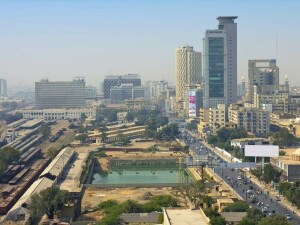












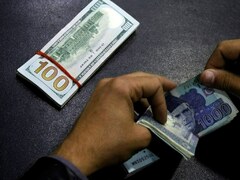
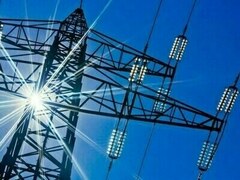
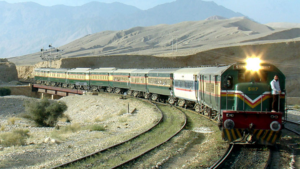


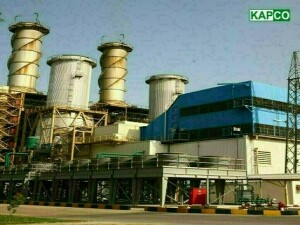

Comments
Comments are closed.